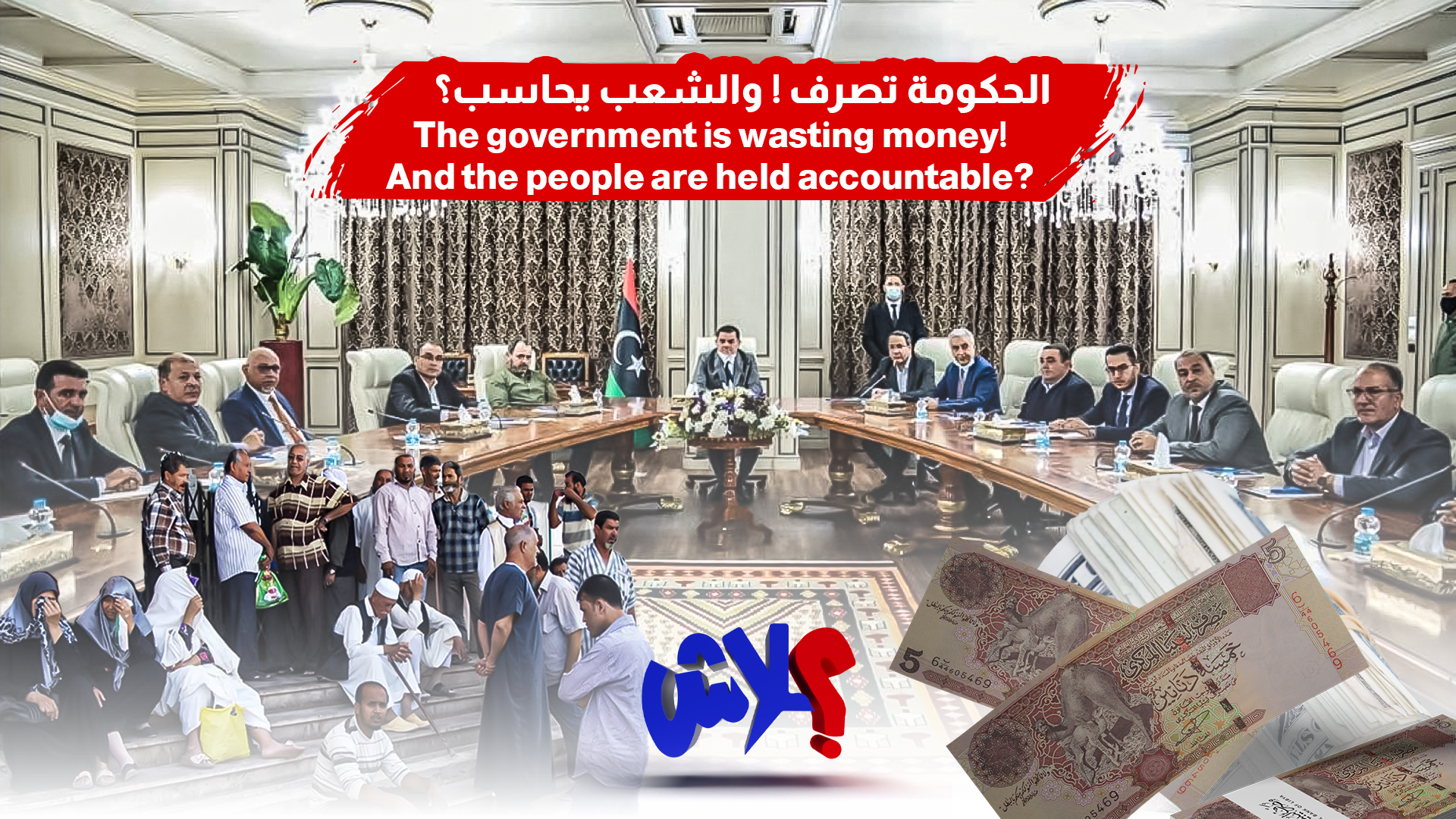The government spends! and the people pay?
During this week, the dollar jumped against the Libyan dinar a large and sudden jump, and did not stabilize at a certain level up to the time these words were written. Elementary questions arose in the Libyan street about the reasons for this rise, and neither the banking nor the political authority in Libya came out to us to explain what happened, as usual?!
The matter was left to citizens' speculation, so we are trying to present here some scenarios that may be the reason for the dollar's rise against the poor dinar.
For some time now, some economists have been saying that the volume of government spending is very large compared to the volume of revenues entering the Libyan state, and that there is a lack of adherence to the usual sections in the state’s general budget, and the invention of some terms such as (miscellaneous) and the imposition of obligations on the state outside the framework of the proposed general or expected budget; economists in Libya have anticipated that Central Bank of Libya will have to increase the value of the tax on the price of the dollar, so that the government can cover the budget deficit, and we are talking here in Libyan dinars, as it is currently expected that the government has spent, according to some bankers, more than 130 billion dinars during this year 2023, and it needs about 50 billion dinars to cover its expenses during the next two months, meaning that the total amount that the government will spend for the entire year is about 180 billion dinars.
This is confirmed by the report of Central Bank of Libya, which was published on the bank’s official website on (October 7th, 2023), where it stated in the third paragraph of its observations the following (Foreign exchange revenues supplied to Central Bank of Libya during the period from January 2023 to October/2023) amounted 19.7 billion dollars, while the total uses and outstanding obligations in foreign exchange until the end of October 2023 amounted to 30.6 billion dollars. This means that the deficit required to be covered is 11 billion dollars. All of this, without forgetting that there are obligations for the months of November and December for this year that were not included in the report.
Here we ask? How will the deficit be covered? from where? As long as our revenues can be expected, even if they are estimated, why do we not spend at the level of the money we bring in?
What we heard from most of the economists and financiers whom we discussed before writing this simple effort, is that in most cases the value of the deficit will be covered, through the monetary reserve of hard currency present in Central Bank of Libya, this reserve that enters into the structure of the strength of the Libyan dinar against foreign currencies, so the more the reserve the greater the amount of foreign exchange, the better the position of the dinar is relatively, and this is what they call (the erosion of cash reserves of hard currency).
The normal course of things in the financial administration of the state is that the general budget is presented by the executive authority to the legislative authority in the form of spending sections, through which each value is accounted for, and where will it be spent? How will it be spend? It is approved on this basis, and the legislative authority created affiliated institutions to monitor the disbursement of this budget and called them (oversight institutions). The executive authority cannot exceed the financial values allocated to each of its sections, nor carry out a transfer process except by referring to the legislative authority, and justify before it any transfer process and its reasons and the latter accepts or rejects. This mechanism, May Allah protect you, does not exist in Libya!!!
What exists in Libya, especially after the innovation (financial arrangements) invented by Fayez Assaraj as a result of the House of Representatives’ refusal to grant his government confidence, even though the House of Representatives was part of the Skhirat Agreement, is that there is a “money hoard” and the political authority represented by the government spends money from this hoard located inside Central Bank of Libya, which we obtain from the remains of living organisms on this earth for thousands of years, and we know it today as oil.
Therefore, all that happens is that the government sets the budget and approves it for itself, determines the means of spending, covers all irrational expenses with the term miscellaneous, and tries as much as possible to maintain the satisfaction of (the master of Central Bank of Libya), who is considered to be the one disposing of (the hoard of money) if he is pleased with the executive authority, he releases its hand in (the hoard of money) and if he is angry with it, he closes with his golden key the door of Central Bank, and announces its end.
That's why the master of Central Bank is always right?

